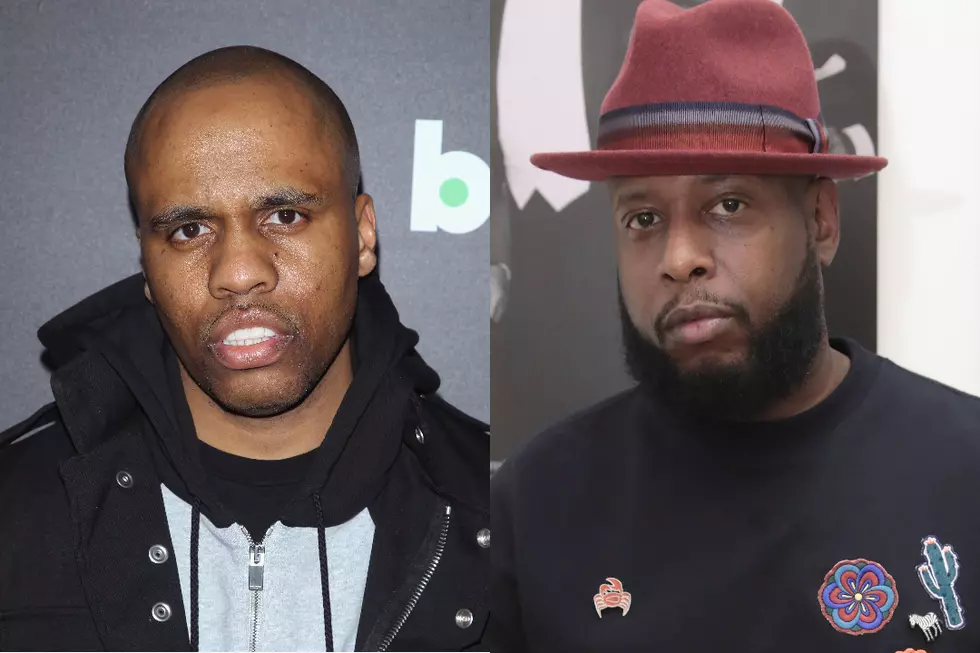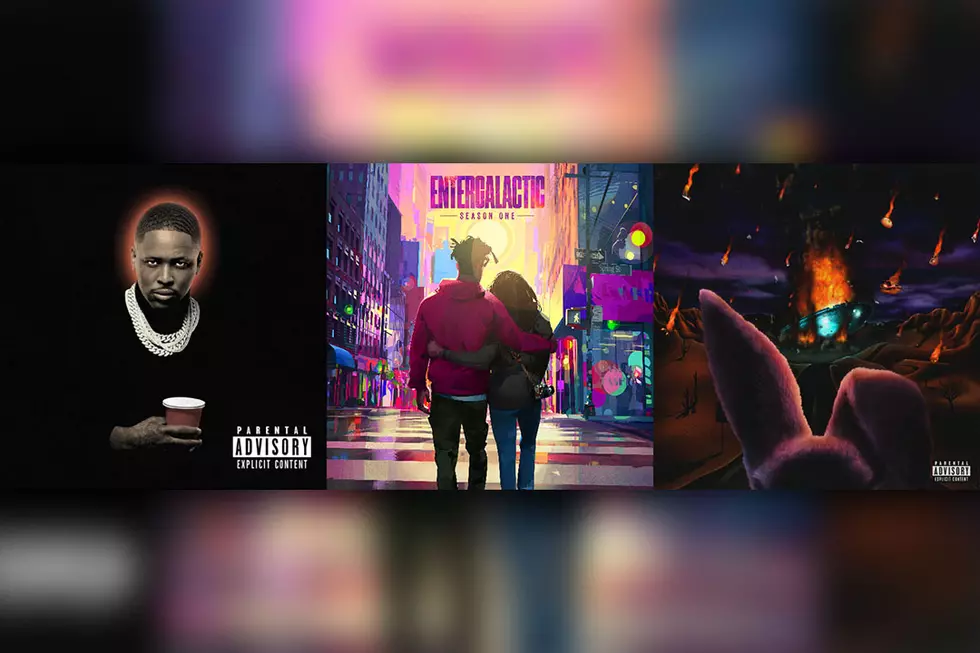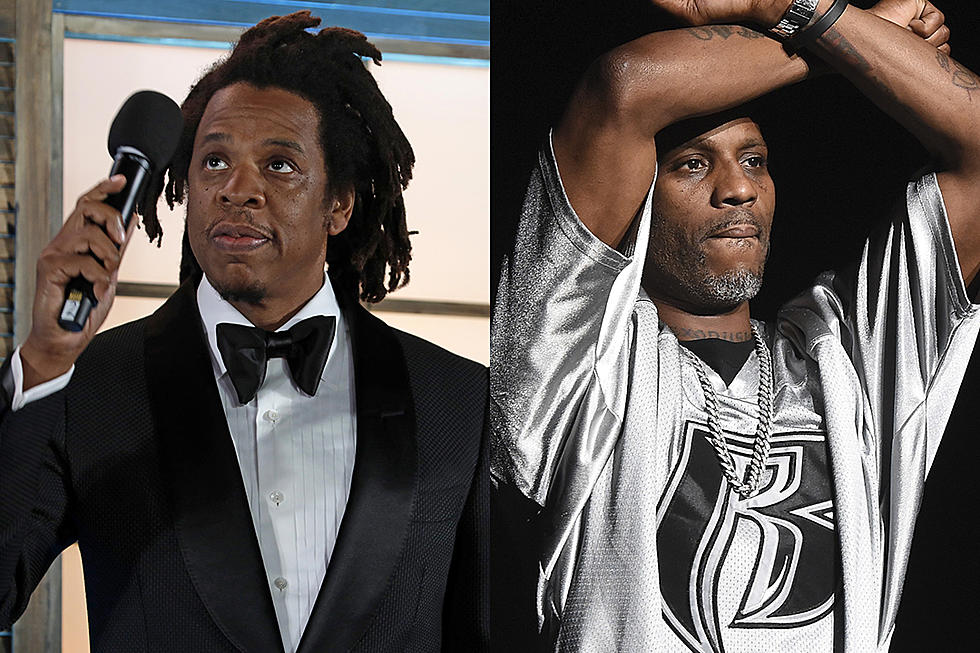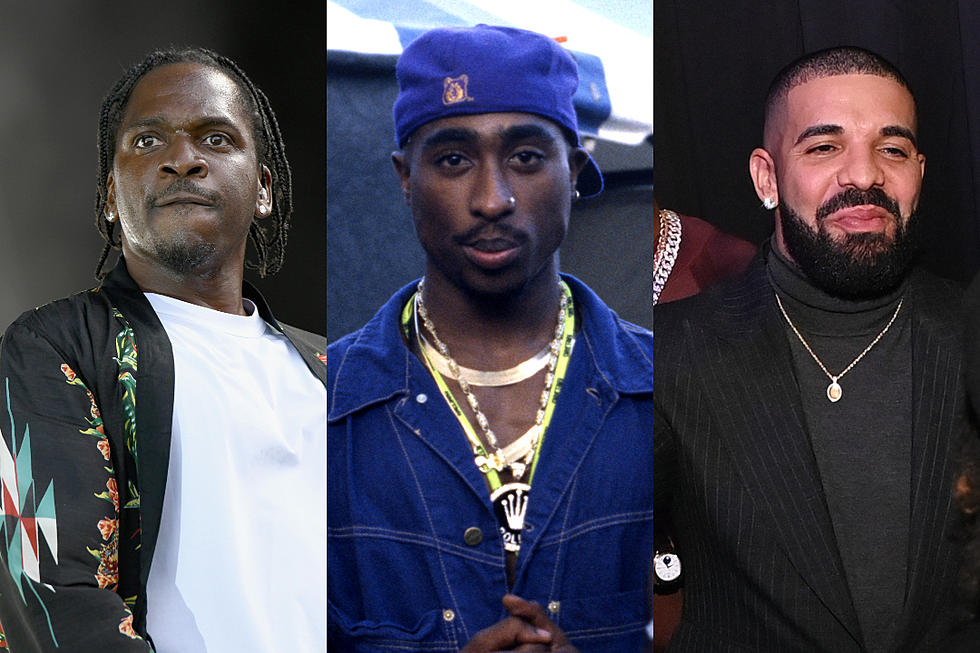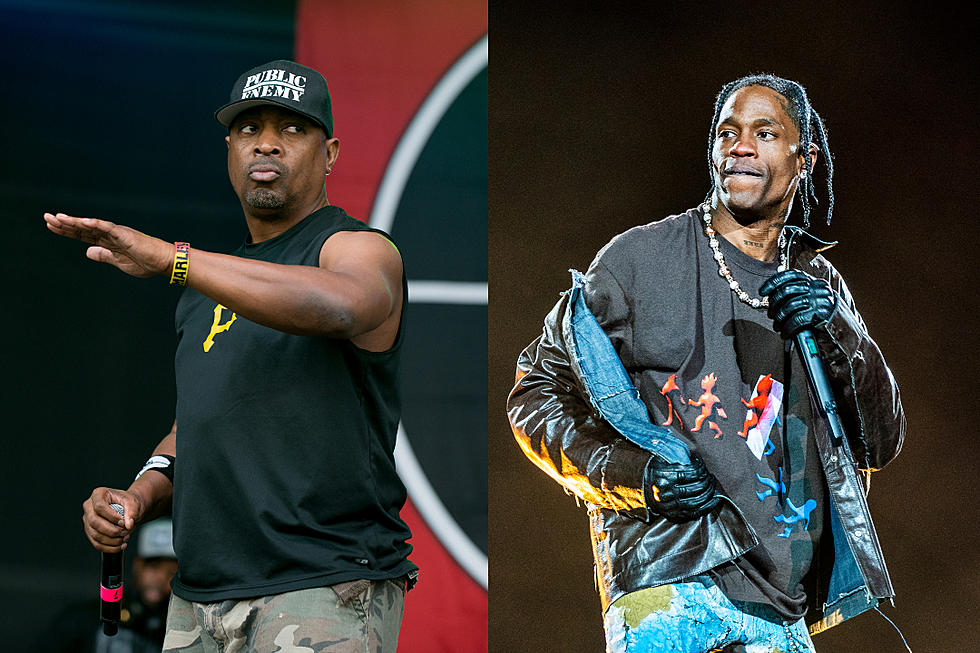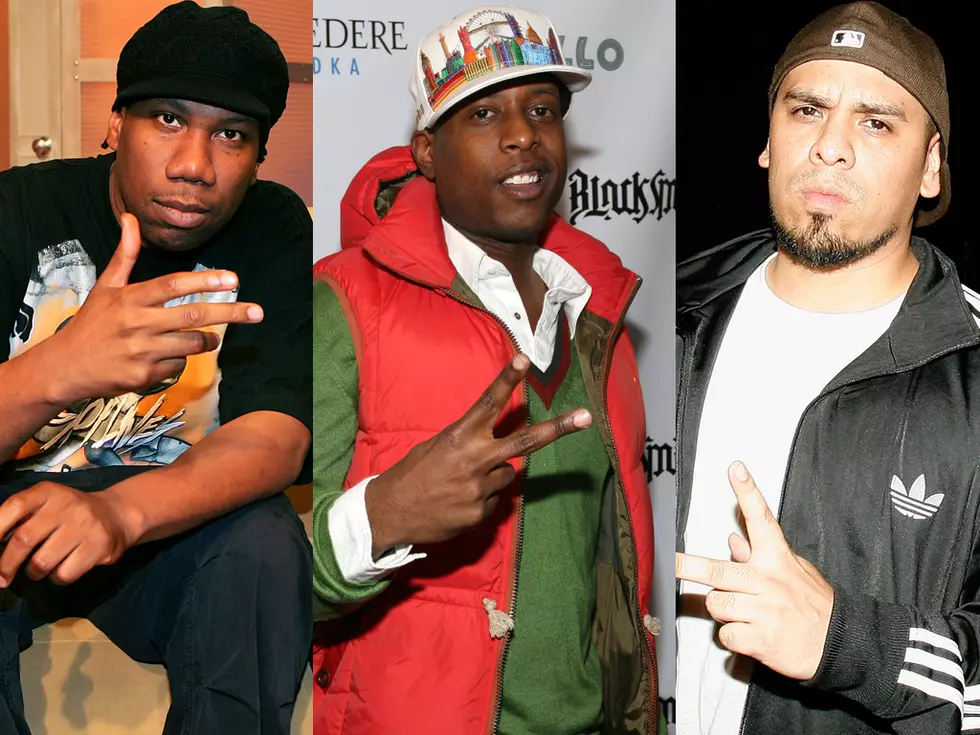
10 Social Movements for Change Supported by Rappers
The late great Tupac Shakur once recounted during an interview the first time he experienced the real power of his music. After being approached by numerous other inmates, he realized that Thug Life -- as a movement -- was bigger than he had ever imagined, and an army of supporters (both locked up and free), were waiting for him to layout plans for change and cast the orders to carry them out.
Hip-hop music has always been (at its core) music for rebels, and throughout the years, artists accept, embrace and run with the powerful aura of their brands. When pressed by the media, Snoop Dogg was once famously quoted as saying, "I feel like I'm one of the power speakers, like a Malcolm X figure." When an artist reaches the upper echelon with the power to rock a stadium, it's impossible not to feel the jolt of energy that unquestionably comes from hearing 60,000 people repeat your words every night. Interpreting that influence as a form of social responsibility, though, is not part of the job.
While some of the biggest and brightest rappers would rather not mix business and politics, others throughout the history of hip-hop have witnessed the amplified voice the genre offers its stars and used it as an opportunity to express strong opinions, no matter how high the risk of damaging their commercial success. No risk no reward, after all. Public Enemy and N.W.A. were boycotted and feared. Kanye West said that former President George W. Bush hated black people, much to the apparent dismay of actor Mike Myers on live TV.
Hip-hop was (and today remains) one of the biggest available tools for social change. Here at XXL, we've put together a list of 10 movements that were either led or directly supported by notable figures in hip-hop.
H.E.A.L
H.E.A.L movement, an acronym for The Human Education Against Lies, was developed by Professor Zizwe Mtafuta-Ukweli and rapper/activist KRS-One. The movement was a self-described offensive against what the two described as "common sense deficiency syndrome," which [the movement] saw as a support system for social ills including crack addiction, racism, sexism, environmental terrorism, and imperialism. The root of their solution was knowledge and the reconstruction of the [then] current education system, which they saw as filled with lies and miseducation. The first and only notable -- and tangible -- project of the H.E.A.L. movement was the Heal Yourself song/video. It featured an all-star cast that Kid Capri, Big Daddy Kane, LL Cool J, Freddie Fox, MC Lyte, Queen Latifah, Jam Master Jay, Chuck D and more.
Stop the Violence
The late 1980s were tough for the Blast Masta as he was still mourning the murder of his partner/mentor DJ Scott La Rock. Following a death of a concertgoer that same year, Kris was motivated to found the Stop the Violence movement, which was famously marked with the [epic] record "Self-Destruction," featuring artists that ranged from Kool Moe Dee and MC Lyte to Eazy-E. The song -- and movement at large -- focused mainly on the need for the Black community to stop destroying itself senselessly, and unite to overcome and grow, together.
Feel the Bern
In a primary election race that -- according to some -- seemed to glaze over the issues that largely affect the black community, Bernie Sanders appeared to be a responsible answer. Rapper Killer Mike became his unofficial campaign leader, and in a series of press conferences and high-profile interviews, shared his passion for the presidential hopeful. "I can find a picture [of him] from 51 years ago chained to black women, and protesting segregation. Then, 51 years later, he's willing to fold his arms and let two black girls, who run on stage, yell [about issues affecting our communities] -- rightfully so -- as opposed to telling them 'later,'" he explained during one such interview. "I know the only person I have the conscious to vote for is Bernard Sanders."
Million Man March
What began as a grassroots movement to garner attention for urban and minority issues culminated on October 16, 1995. One million African-American men from across the country joined Minister Louis Farrakhan at the National Mall in DC to unite in self-help and self-defense against both the economic -- and social -- ills and injustices plaguing the African American communities across America. In an interview with DJ Vlad, Def Jam co-founder Russell Simmons explained that Public Enemy frontman, Chuck D, actually had a large hand in making the momentous event to light. Many other notable rappers, including Ice Cube, fresh off the release of Amerikkka's Most Wanted, spoke in support of the march. The march was marked musically by the compilation One Million Strong, which featured -- among other things -- the only true collaboration between Pac and Biggie.
Vote or Die
Diddy has never been afraid to speak his mind. In the face of low voter turnout amongst, mainly due to a perceived lack of engagement and purpose, he launched Citizen Change in 2006 -- and the subsequent Vote or Die campaign. Numerous stars supported the movement, including Mary J. Blige, Mariah Carey and 50 Cent. Diddy appeared everywhere rocking his flashy shirts, including popular programs like 106 & Park, and in commercials on the BET network. His heart was pure, but he's since changed his tone; at a Q&A session during Revolt’s music conference, Diddy shared a more jaded view of the process he once supported: "We started Vote or Die, and the whole process was all full of shit. The whole shit is a scam.”
Occupy Wall Street
"We are the 99 percent," was the general sentiment of the Occupy Wall Street movement, a non-violent protest that took place roughly four years ago. Initially proposed by Adbusters, the protest lasted approximately two months. Much like Anonymous, the movement had to discernible leaders, but rather, worked as a collective to cast a spotlight onto the greed and corruption of the 1 percent, to whom Wall Street is widely considered to cater. Although the protesters were (mostly) peaceful, there were reported arrests, attacks, and the widely publicized macing of a young woman, which raised tension during the height of the protest. Politically charged underground rap icon, Immortal Technique, emerged as an unofficial spokesperson during the protest. “It [revolution] is never going to finish because we can never stop reforming our democracy. The moment the revolution stops means the revolution has been betrayed,” noted the artist during one of his many interviews.
America Is Dying Slowly
Between 1996 and 1997, the AIDS epidemic in America was at an all-time high -- and as urban America was learning, the disease was ignorant to both sexuality and race. Red Hot Organization had been releasing compilations since 1988, and in 1996 it released the eighth installment, America Is Dying Slowly (AIDS). Hailed as a masterpiece by numerous publications, it featured an incredible cast of lyricists such as Mobb Deep, De La Soul, Coolio, Biz Markie, Chubb Rock, The Lost Boyz, Pete Rock, Common and Wu-Tang Clan. The album was largely successful in not only raising awareness but using the genre as a means for engaging in dialogue and providing basic education about a taboo subject many hip-hop fans were ignorant about. Recommend listening material, for sure; countless gems.
Tibetan Freedom Concert
China's longstanding occupation of Tibet -- and the resulting violations of fundamental human rights and freedoms -- has long (and continues to be) an active international issue. It became of particular interest to late Beastie Boys Adam Yauch, better known as MCA. In 1994, he founded The Milarepa Fund. Their most notable outreach effort was the two-day Tibetan Freedom Concert series, the first of which took place in San Francisco in 1996 and raised well over 800,000 for Tibetan exile organizations. The initial concert had acts such as The Beastie Boys, Biz Markie, A Tribe Called Quest and bands such as Rage Against The Machine. Under The Milarepa Fund, concerts were held annually until 1999.
Free Tookie
Stanley Williams, better know as Tookie, was the founder of the infamous Crips street gang. In 1979, he was convicted on four counts of first-degree murder, and sentenced to death. While incarcerated, he reformed and turned his life around, authoring some books, including anti-gang focused children's book. He -- and his legal team -- tried and failed to appeal his capital punishment. A last-ditch campaign in late 2005 was launched to appeal to Gov. Schwarzenegger to grant clemency to Tookie as a result of his anti-gang activism. Snoop Dogg, a former Crip, was one such supporter, stating during a rally that "he inspired me to want to do something positive with my life and to go touch the kids." The campaign was ultimately unsuccessful, and Tookie was executed Dec. 13, 2005.
#BlackLivesMatter
To put it simply Black Lives Matter -- created following the death of young Trayvon Martin -- is a national organization working for the validity of Black life; it's a sad reality that such an organization is even necessary. As they describe it, "Black Lives Matter is broadening the conversation about state violence to include all of the ways in which Black people are intentionally left powerless at the hands of the state." The movement has received support from numerous hip-hop artists, such as The Game, Kendrick Lamar, J. Cole, Nelly, Jeezy, Nas, Talib Kweli and Q-Tip, amongst others,on wax, online and in person at rallies across the nation.
More From Club 93.7
